All Stories
-
 Climate
ClimateHalf the world’s annual rain falls in just 12 days
Climate change could shorten the time it takes for the world to receive half its annual precipitation from 12 days to 11 by 2100.
By Kyle Plantz -
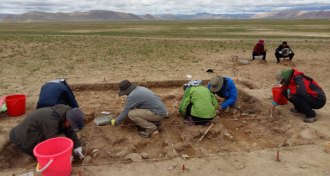 Archaeology
ArchaeologyStone Age people conquered the Tibetan Plateau’s thin air
Stone tools that are at least 30,000 years old suggest that people settled the high-altitude Tibetan Plateau earlier than scientists thought.
By Bruce Bower -
 Health & Medicine
Health & MedicineAround the world, reported measles cases jumped 31 percent in 2017
While the number of reported measles cases has dropped 80 percent from 2000 to 2017, high profile outbreaks pushed the 2017 total up from 2016.
-
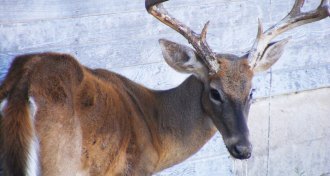 Environment
EnvironmentAn acid found in soil may make a disease killing deer less infectious
An incurable neurodegenerative disease crippling North American deer, elk and moose may be thwarted by an organic soil compound.
-
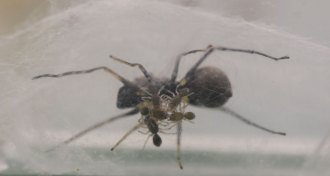 Animals
AnimalsA jumping spider mom nurses her brood for weeks on milk
Even after spiderlings start hunting for themselves, they come to mom for milk.
By Susan Milius -
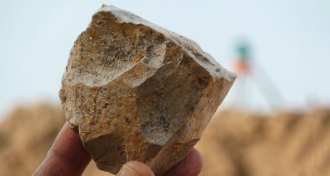 Archaeology
ArchaeologyStone-tool makers reached North Africa and Arabia surprisingly early
Ancient Homo species spread advances in toolmaking far beyond East Africa.
By Bruce Bower -
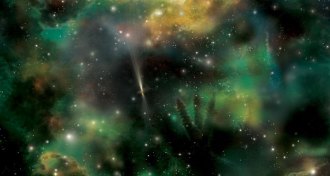 Astronomy
AstronomyAstronomers have measured all the starlight ever emitted
Astronomers used distant blazars to tally up all the stray photons roaming through space.
-
 Neuroscience
NeuroscienceZaps to a certain spot in the brain may ease depression
When implanted electrodes stimulated a brain region just behind the eyes, people’s spirits were raised immediately.
-
 Health & Medicine
Health & MedicineKids born in August are diagnosed with ADHD more than kids born in September
August-born kids have higher rates of ADHD diagnosis than kids born in September in U.S. states with a September 1 cutoff for starting kindergarten.
-
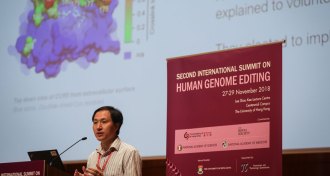 Genetics
GeneticsThe researcher who created CRISPR twins defends his work but fails to quell controversy
After getting a glimpse of data behind the birth of the first gene-edited babies, many scientists question the study’s ethics and medical necessity.
-
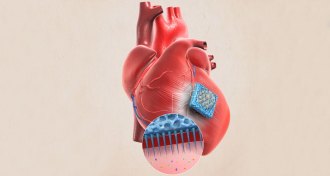 Health & Medicine
Health & MedicineA patch studded with tiny needles may help heart attack survivors recover
A bandage that sticks to the surface of the heart exudes proteins and other molecules that help muscle cells grow.
-
 Climate
ClimateHere’s how much climate change could cost the U.S.
A report by hundreds of scientists from 13 federal agencies starkly outlines the economic impacts of climate change on the United States.
By Carolyn Gramling and Laurel Hamers